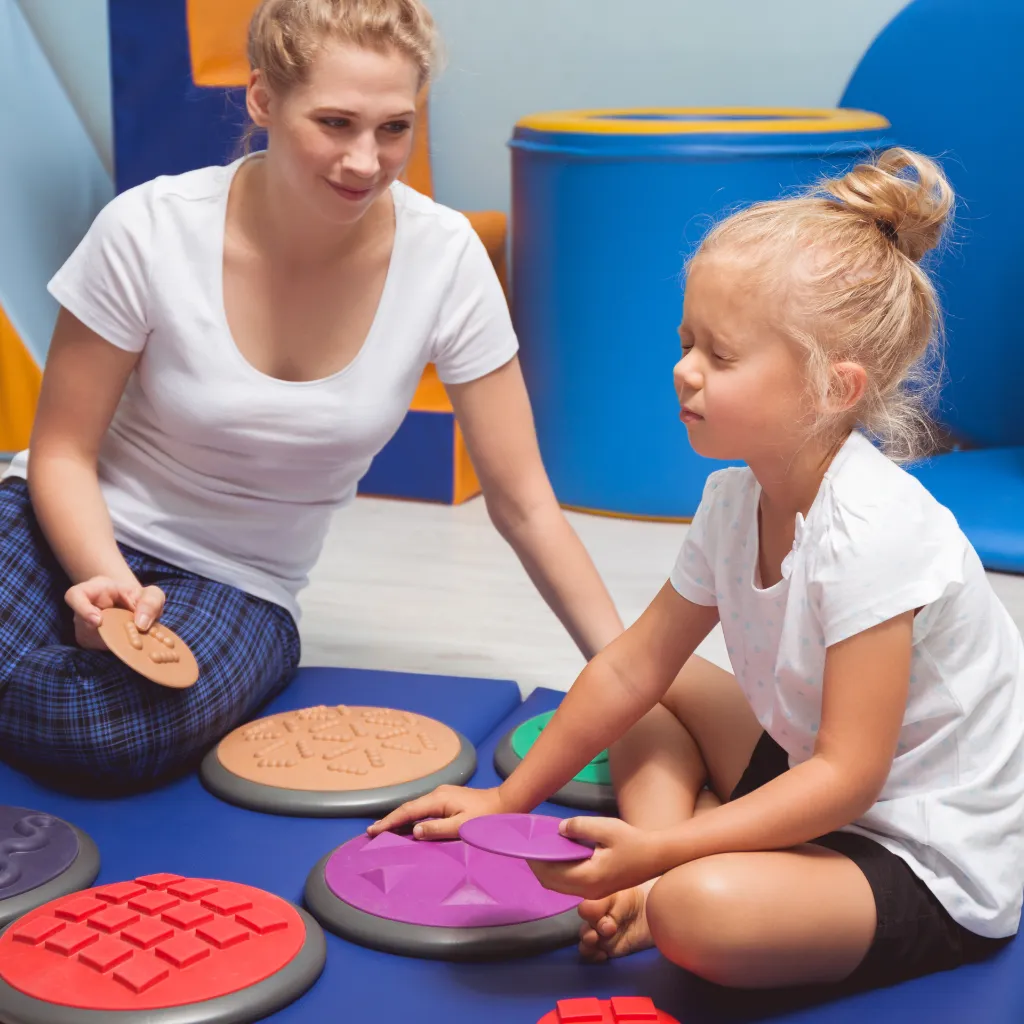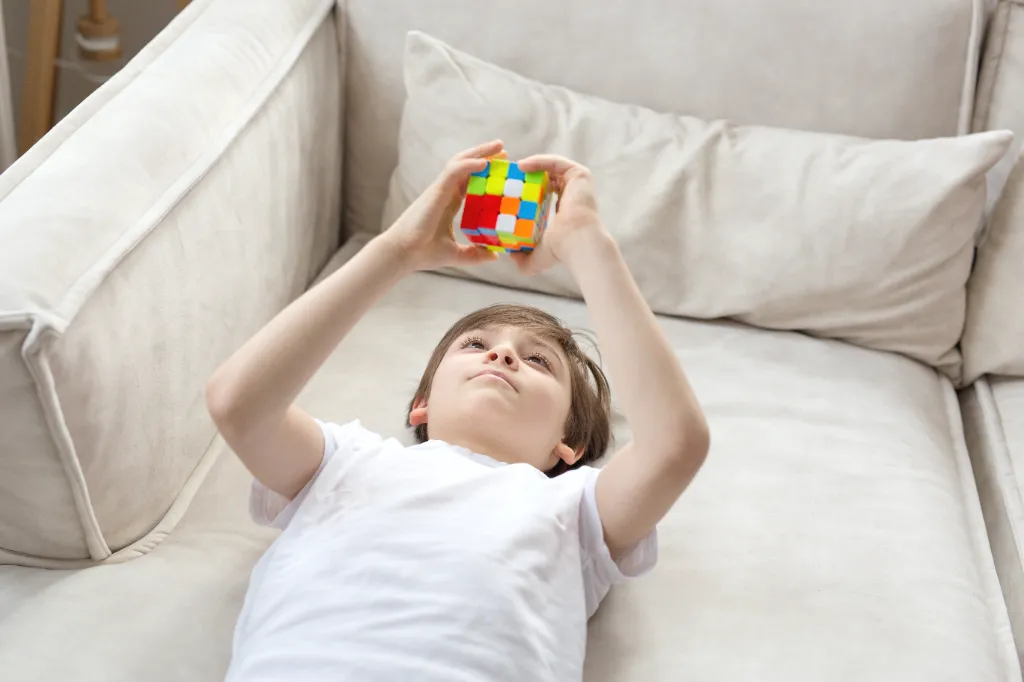AUDHD Double Diagnosis: What Does it Mean?
AuDHD is a combined term crafted by the neurodivergent community that represents the interlinking between autism and attention deficit hyperactivity disorder. Studies show there is a substantial overlap between these differences, with 50-70% of autistic individuals having some symptoms of ADHD. Although it is not formally recognised in a clinical setting, AuDHD is becoming a relevant topic today as it represents a way for individuals to articulate their uniqueness and the connected nature of both ADHD and Autism.
Individuals with AuDHD may sometimes face challenges due to the dual diagnosis and challenging symptoms, such as inattention and social difficulties. The world around us is designed following the preferences of neurotypical individuals and is not always inclusive of neurodivergent individuals. The term “neurotypical” refers to people with typical neurological development, while “neurodivergent” explains the different ways our brains can work. Addressing AuDHD is essential in helping neurodivergent people feel included in society and help them overcome challenges.
AuDHD manifests differently for each individual, exhibiting various patterns in attention allocation and emotional expression. Taking a personalised and person-centred approach is essential when developing a care plan and helping people regain the ability to pursue and achieve all their goals while navigating the complex nature of AuDHD.
Sensory Processing Difficulties Specific to Individuals with AUDHD
AuDHD and sensory processing disorder (SPD) also often intertwine, which can create complex challenges for people facing this diagnosis. Autism, attention hyperactivity deficient disorder and sensory processing disorder are all neurological differences which can impact social interactions, behaviour and communication.
For people with AuDHD and SPD, everyday experiences may feel overwhelming since seemingly ordinary textures, sounds, and smells can trigger extreme reactions.

Individuals living with Autism Spectrum Disorder often face challenges with social interactions, sensory sensitivities, and repetitive behaviours. ADHD makes it difficult to sustain attention and can lead to impulsive, hyperactive behaviour, making it challenging to focus on daily tasks. SPD involves difficulties responding to sensory stimuli, which leads to experiencing sensory overload and discomfort. When these challenges coexist, it intensifies the challenges people face.
The interaction between sensory processing in AuDHD highlights how brains function differently and emphasises the uniqueness of every person. It highlights the need for a person-centred, holistic approach and intervention to enhance the quality of life for people with these differences.
Difficulties With Transitions
Change and transitions can be particularly challenging for people with sensory sensitivities, and adjusting to a new routine or environment can be overwhelming. Introducing new and loud sounds, routines, textures and smells can create additional sensory load and make transitioning even more challenging to navigate. As a result, people with AuDHD and sensory processing disorder may feel an increased sense of overwhelming emotions during times of change and need more time to adjust to the new environment.
Sensory Overload
Sensory overload may happen due to environmental factors that overstimulate one or more of our five senses, making it difficult for the brain to process all information correctly. When this happens, the person with sensory overload may exhibit strong emotions or shut down. Although anyone can experience sensory overload, it is more likely that it will affect people with:
- Post-traumatic stress disorder (PTSD)
- Anxiety
- Attention deficit hyperactivity disorder
- Autism
- Sensory processing disorders
For some individuals, it may be confusing to fully understand how to cope with the conflicting stimuli around them. Although not all individuals with AuDHD will experience sensory overload, the common factors that can increase the chances of experiencing sensory overload include:
- Impulsiveness
- Hyperactivity
- Difficulty self-regulating emotions or actions
- Changes in routines
- Reduced sensory input
- Sensory hypersensitivity
- Anxiety
- Challenges with cognitive processing
Sensory overload occurs when the brain becomes too overwhelmed by the various sensory stimulation from the environment and makes it challenging to provide accurate emotional responses. With proactive support, individuals can find healthy ways to manage sensory overload.
Tactile Sensitivity
The tactile system includes our hands and skin and helps us interpret and perceive touch and pressure. It enables us to feel different temperatures, textures and the levels of pressure we apply when holding or touching something.
The best way to manage tactile sensory processing issues is to talk with a therapist who can tailor strategies to individuals. In some cases, it may be helpful to avoid certain textures, temperatures and fabrics. However, therapy can help people manage their discomfort and find methods tailored to the child, such as taking frequent pauses from activities that involve tactile processing stimulation.
Difficulty Settling Down After Activities
People with AuDHD are more likely to experience a difficult time settling down after activities due to hyperfocus and hyperactivity. They also may face challenges with falling asleep. The challenges differ from one person to another. Some individuals may face symptoms of insomnia due to struggling with hyperactivity, while others may need a strict routine and get overwhelmed when routines are disrupted.
Social Interactions Difficulties
The social skills we all have result from a pattern of behaviour that allows us to communicate effectively and includes verbal and non-verbal signs like body language and gestures. However, people with AuDHD may struggle with social interactions and social cues. Common symptoms such as impulsivity, hyperactivity, sensory overload and anxiety can cause challenges in social situations.
However, there are plenty of management and therapy strategies that can help people with AuDHD and sensory processing disorder improve their social skills and form long-lasting relationships.
Impact of Sensory Processing Challenges on Daily Life
Everyone experiences variations in sensory processing, but for people, these differences can pose many difficulties in performing daily tasks.
AuDHD and SPD need to be looked at as whole-person and whole-life differences, and it is more than just a combination of symptoms. The impact of differences touches people’s lives from the moment they wake up to the moment they go to sleep. It has a massive effect on well-being and mental health and can impact how people communicate and interact with the world.
The impact of sensory difficulties can be overwhelming; however, with the proper management, treatment and support, individuals with sensory overload and AuDHD can lead active, fulfilling and successful lives.
Support For Sensory Processing Difficulties
Facing sensory processing difficulties can be both emotionally and physically challenging, and sensory overload can be very distressing for individuals and their families. However, people with AuDHD and sensory processing difficulties can certainly lead fulfilling and healthy lives with the proper treatment and management of challenges.

Some of the support techniques that help people with AuDHD manage sensory processing symptoms include:
- Identify triggers: learning about common triggers like crowded places and flashing lights can help people avoid them in the future
- Being proactive: understanding what causes sensory overload and finding proactive ways to cope with the negative effects can help with minimising their influence
- Implement self-calming and relaxation techniques: deep breathing, meditation, and exercise are great ways to help reduce stress and minimise the risk of intense reactions. For children, introducing sensory toys or security blankets can help redirect the focus and attention
- Establish a routine: Creating a schedule of activities can help manage and prevent symptoms of feeling overwhelmed
Sensory challenges can also be more manageable with proactive support as people learn different practices and coping mechanisms. Some ways to alleviate the impact of sensory overload include:
- Self-care techniques
- Mental health resources
- Therapeutic options
- Coping strategies
With a consistent routine and a proactive approach, the sensory challenges for people with AuDHD can be minimised and avoided and, in some cases, even preventable.
Get Support with Unique Community Services
At Unique Community Services, we support people with sensory processing challenges as well as ADHD and autism through our progressive and person-centred approaches.
Our dedicated clinicians and professionals in occupational therapy utilise Positive Behaviour Support (PBS) practices and are committed to providing a humanised touch to our services. We understand that each person’s journey is different, so we tailor our approach to every individual.
You can find offices in Manchester, Bristol, and Leeds where our expert team can create a supportive care plan to nurture your personal growth and well-being.
Contact us today for more information and tailored complex care support.














